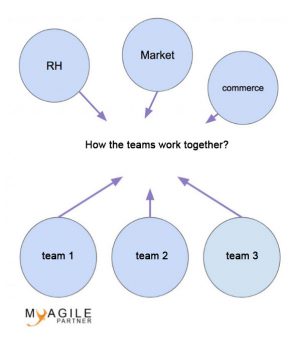
In the ever-evolving landscape of Agile methodologies, Large-Scale Agile frameworks like the Scaled Agile Framework (SAFe) have gained prominence. Within this context, the role of a Tribe Manager has emerged as a pivotal position responsible for ensuring alignment, collaboration, and success in large-scale Agile organizations. But what exactly is a Tribe Manager, and why is this role so crucial?
Understanding the Tribe Manager Role
A Tribe Manager is a key leadership position within an Agile organization, typically responsible for a group of teams known as a tribe. The tribe comprises multiple Agile teams that work together to achieve common objectives, often related to a specific value stream or product. The role of a Tribe Manager is to facilitate and enable these teams to work cohesively and efficiently.
Responsibilities of a Tribe Manager
The responsibilities of a Tribe Manager are diverse and multifaceted, including:
- Aligning with the Organization’s Strategy: Tribe Managers ensure that the work of the tribe is aligned with the organization’s strategic goals and objectives. They play a critical role in translating the larger strategic vision into actionable plans at the tribe level.
- Empowering Teams: Tribe Managers empower teams within their tribe to make decisions and take ownership of their work. This empowerment fosters a culture of autonomy, responsibility, and innovation.
- Fostering Collaboration: Collaboration is at the heart of Agile methodologies, and Tribe Managers are instrumental in fostering cross-team collaboration. They encourage knowledge sharing, joint problem-solving, and continuous improvement.
- Supporting Agile Practices: Tribe Managers help teams implement and follow Agile practices, ensuring that they adhere to the principles and values of Agile methodologies. They may provide guidance on Agile ceremonies, rituals, and best practices.
- Removing Impediments: Identifying and eliminating obstacles that hinder the progress of teams is a crucial responsibility. Tribe Managers work to create a conducive environment for teams to deliver value efficiently.
- Communication and Reporting: Tribe Managers serve as a bridge between the tribe and the organization’s leadership. They provide regular updates, progress reports, and status updates, ensuring transparency and alignment.
- Continuous Improvement: Tribe Managers promote a culture of continuous improvement, where teams regularly reflect on their processes and outcomes, seeking ways to enhance efficiency and effectiveness.
Why the Role of Tribe Manager Matters
The role of a Tribe Manager is instrumental for several reasons:
- Alignment and Focus: In large organizations, maintaining alignment between multiple teams can be challenging. Tribe Managers play a vital role in ensuring that teams are working towards shared objectives.
- Efficiency and Productivity: By empowering teams and removing impediments, Tribe Managers enhance the efficiency and productivity of Agile teams, leading to faster delivery of value.
- Collaboration: Collaboration between teams is a core principle of Agile. Tribe Managers facilitate this collaboration, which, in turn, leads to better results and increased innovation.
- Adaptability: As the Agile landscape evolves, Tribe Managers help organizations adapt and thrive in a rapidly changing business environment.
- Strategic Execution: Tribe Managers bridge the gap between strategic goals and actual execution. Their role is crucial in translating strategy into action.
In conclusion, the Tribe Manager is a linchpin in the success of large-scale Agile organizations. This role ensures alignment, collaboration, and efficient delivery of value across multiple teams. As Agile methodologies continue to shape the future of work, the Tribe Manager’s role becomes increasingly vital in orchestrating success. Organizations that recognize and invest in the Tribe Manager position are better equipped to thrive in the dynamic business world of today.




Be the first to comment